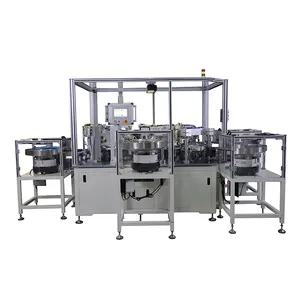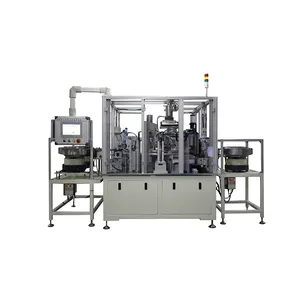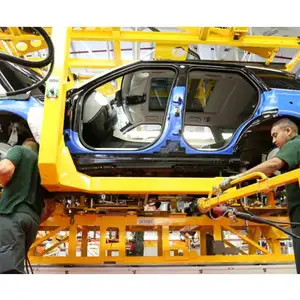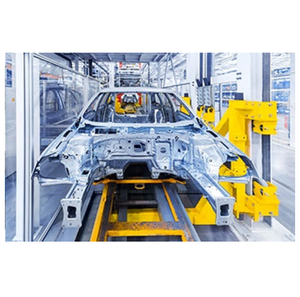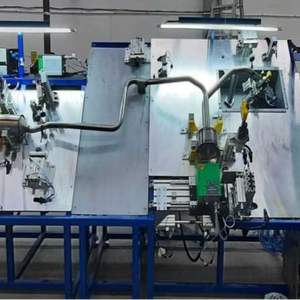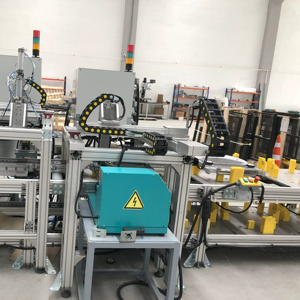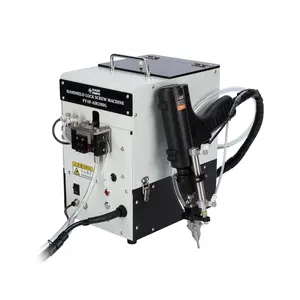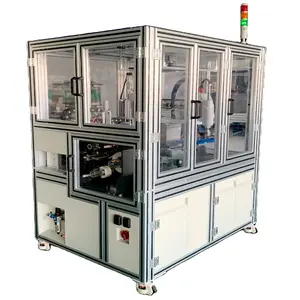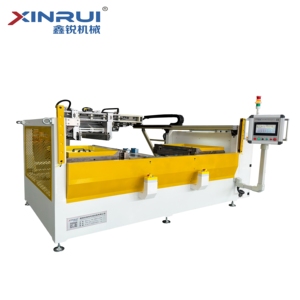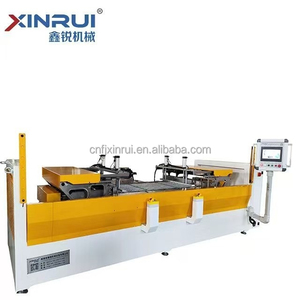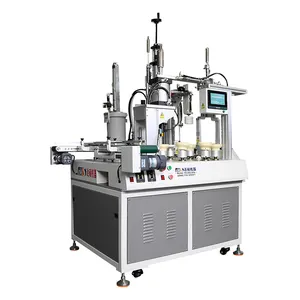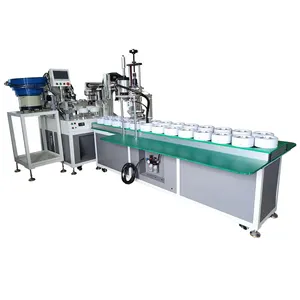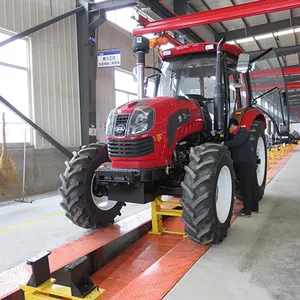Automated Assembly System Supplier





 1/3
1/3





 1/3
1/3

 CN
CN





 1/3
1/3

 CN
CN






 1/26
1/26





 0
0





 1/3
1/3



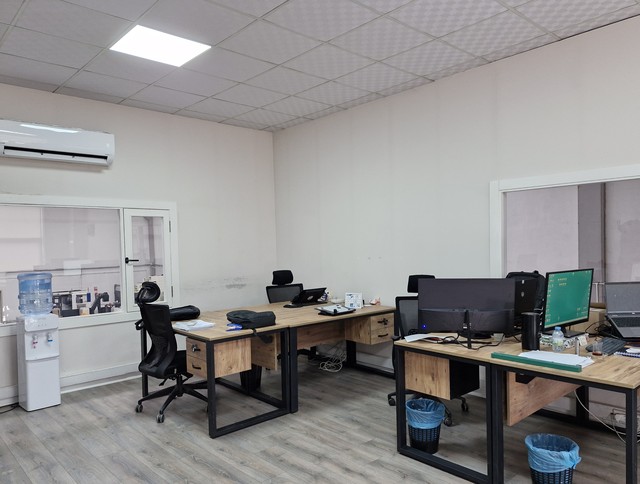

 1/2
1/2




 1/1
1/1

 CN
CN







 1/10
1/10



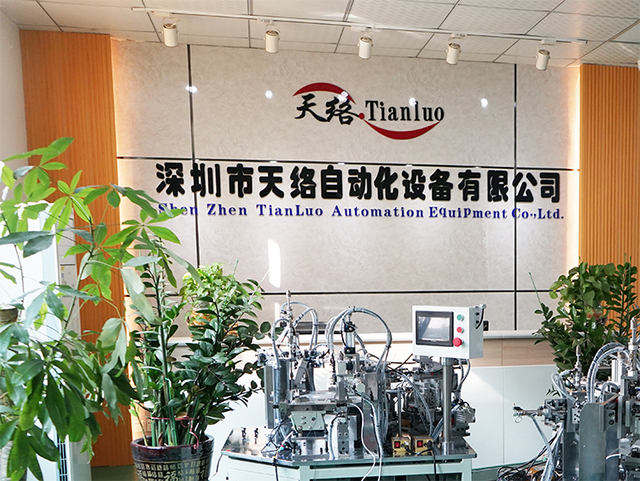

 1/3
1/3





 1/3
1/3





 1/3
1/3





 1/3
1/3


 CN
CN








 1/1
1/1






 1/3
1/3




 0
0






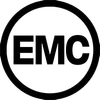




 1/25
1/25





 1/3
1/3



About automated assembly system supplier
Where to Find Automated Assembly System Suppliers?
China remains the global epicenter for automated assembly system manufacturing, with key supplier clusters concentrated in Guangdong, Jiangsu, and Zhejiang provinces. These regions host vertically integrated industrial ecosystems that combine precision engineering, robotics integration, and advanced control systems under one supply chain. Suzhou and Shenzhen are particularly notable for high-precision medical and electronics automation, while Ningbo and Huizhou specialize in home appliance and HVAC production lines.
The geographic concentration enables streamlined access to component suppliers, including servo motors, vision systems, and custom tooling manufacturers within 50km radii. This proximity reduces lead times by up to 25% compared to offshore alternatives and supports rapid prototyping and field service response. Buyers benefit from scalable production capacity—facilities often operate across 3,000–10,000m² campuses—with monthly output ranging from single units to full turnkey lines. Localization also reduces costs: Chinese suppliers typically offer 20–40% lower pricing than European or North American counterparts for equivalent automation solutions.
How to Choose Automated Assembly System Suppliers?
Procurement decisions should be guided by technical, operational, and transactional verification protocols:
Technical Compliance & Certifications
Confirm adherence to international safety and quality standards such as ISO 9001, CE marking for machinery directives, and RoHS compliance where applicable. For medical device or electronics applications, validate that suppliers implement traceability systems, cleanroom-compatible designs (ISO Class 7+), and ESD-safe materials. Request test reports for cycle time accuracy, mean time between failures (MTBF), and integration compatibility with existing MES/SCADA platforms.
Production Capability Assessment
Evaluate infrastructure through documented evidence:
- Minimum factory area of 3,000m² to support full-line assembly and testing
- In-house engineering teams capable of PLC programming, robotic integration, and HMI development
- On-site testing bays for dry runs and performance validation prior to shipment
Cross-reference delivery performance metrics—target on-time delivery rates ≥98%—with order volume history to assess scalability.
Customization & Quality Control
Assess customization depth beyond basic parameter adjustments. Leading suppliers offer modular design frameworks allowing reconfiguration for product variants, changeover automation, and future expansion. Verify QC processes include FMEA documentation, 100% functional testing, and camera-based inspection integration. Prioritize partners providing digital twins or 3D simulations during design review phases.
Transaction Safeguards
Utilize secure payment structures such as escrow services or milestone-based disbursements tied to factory acceptance tests (FAT). Review historical reorder rates as an indicator of post-sale satisfaction. Conduct sample evaluations focusing on repeatability tolerance (±0.02mm typical for precision tasks) and uptime reliability over a 72-hour continuous run.
What Are the Best Automated Assembly System Suppliers?
| Company Name | Main Applications | Price Range (USD) | Min. Order | On-Time Delivery | Avg. Response | Reorder Rate | Customization | Revenue Tier |
|---|---|---|---|---|---|---|---|---|
| Suzhou Lingwen Intelligent Equipment Co., Ltd. | Medical Devices (IV Catheters, Syringes) | $15,000–$500,000 | 1 set | 100% | ≤8h | - | Limited data | Not disclosed |
| Huizhou Guanjie Technology Co., Ltd. | Home Appliances (Refrigerators, ACs, Washers) | $119,999–$208,888 | 1 set | 100% | ≤2h | - | Standard options | Not disclosed |
| Shenzhen Zeyu Intelligent Industrial Science Technology Co., Ltd. | Toys, Fasteners, Mechanical Components | $900–$80,000 | 1 set | 100% | ≤2h | - | Modular systems | US $2,000+ |
| Ningbo Huagong Automation Technology Co., Ltd. | Plastics, Child Toys, Pistons | $10,000–$50,000 | 1 set | - | ≤3h | 66% | Color, material, size, logo, packaging | US $330,000+ |
| Tianjin Huachuanyuan Electronic Sales Co., Ltd. | Electronics (SMT, LED, Solar Panels) | $98,000–$180,000 | 1 set | 100% | ≤1h | - | Limited data | US $2,000+ |
Performance Analysis
Suppliers demonstrate clear specialization patterns: Suzhou Lingwen focuses on sterile medical environments requiring validated processes, while Huizhou Guanjie targets large-appliance OEMs needing robust conveyor integration. Shenzhen Zeyu stands out for low-cost modular automation suitable for SMEs, offering sub-$1,000 entry points for simple bullet or pin assembly tasks. Ningbo Huagong distinguishes itself with documented customization breadth and a high reorder rate (66%), indicating strong client retention despite unverified on-time delivery data. Tianjin Huachuanyuan excels in responsiveness (≤1h average) and serves electronics manufacturers requiring SMT line synchronization and thermal process integration. Buyers prioritizing fast communication should consider Shenzhen- or Tianjin-based vendors, whereas those requiring turnkey appliance lines may favor Huizhou’s domain expertise.
FAQs
How to verify automated assembly system supplier reliability?
Cross-validate certifications (ISO, CE) through official registries. Request facility audit reports detailing equipment calibration schedules, workforce training records, and software version control practices. Analyze customer references focusing on installation support, debugging efficiency, and spare parts availability.
What is the typical lead time for automated assembly systems?
Standard configurations require 45–60 days from order confirmation to readiness for shipment. Customized systems with robotic integration or vision inspection extend to 75–90 days. Complex multi-station lines may take 100+ days, especially if FAT and site preparation are included.
Do suppliers offer customization options?
Yes, most suppliers provide varying levels of customization—from feed mechanism type and control interface language to full mechanical redesign. High-end providers support protocol integration (e.g., PROFINET, EtherCAT), changeover automation, and remote monitoring via IoT gateways. Confirm whether modifications affect warranty terms or maintenance intervals.
Can automated assembly systems be shipped globally?
All listed suppliers export internationally. Confirm Incoterms (FOB, CIF, DDP) and ensure compliance with destination regulations for electrical safety and machinery emissions. Disassembly for containerization is standard; reassembly and commissioning services may incur additional fees.
Is sample testing available before full procurement?
Sample units or pilot machines are available upon request, typically at 30–70% of full unit cost. Some suppliers waive fees if followed by volume orders. Testing should evaluate throughput consistency, defect detection accuracy, and ease of operator intervention.




